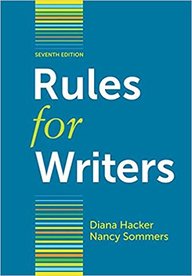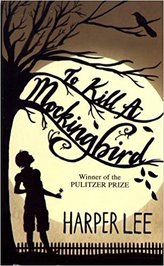 by Rebecca Rodriguez In high school, we are given our first copy of Diana Hacker’s Rules for Writers, which we are commanded to worship. It’s not a bad book, by any means, and (if read for anything other than MLA citation instructions) specific information on sentence structure can be found within it. In fact, there is an entire section dedicated to taking wordy sentences and tightening them. ←Example→ There is a section on tightening wordy sentences. Although fair warning is given that short sentences aren’t always concise, wordiness is considered ultimately taboo. Not only does it focus on eliminating redundancies, but it encourages us, the writers, to cut inflated phrases (e.g. change “At the present time…” into “Now...” or “Currently...”). We also must take every opportunity to reduce a clause into a phrases, or a phrase into a single word. Though we try not to worry about these rules outside of our research papers, it’s too late. Today’s generation of writers have already been brainwashed.
0 Comments
by Ashley Haden
Spending time on a college campus as finals near always leads to hearing familiar complaints in the air. These are complaints about the workload, upcoming exams, and, of course, writing papers. “I hate writing” is one of the most common complaints that I’ve noticed at a wide variety of grade levels. Students will often actively try to avoid writing if possible. Why is this? by Joe Magaletta  There’s a story that makes me uncomfortable. A black man has been accused of raping a white woman. We follow the story of an attorney who goes out of his way to try and prove that the woman is making a false allegation, doubting the victim in this situation. It’s an exploration of bias, the justice system, racial inequality, and compassion. These are all ideas that are worth exploring… But now I’m uncomfortable. Therefore, To Kill a Mockingbird shouldn’t be taught in schools. This is a growing trend: the fear of being offended, of confronting triggers, of having to question ideas and explore points of view that don’t exactly mesh with our own. The political climate is as heated as ever, and the desire to hear the opposition has died down in favor of preaching to the choir.  by Elaine Paliatsas-Haughey Once again in my teaching career I am seated across a school room table from the parents of a student who is struggling to read. I say, "Little Janie is reading on a third grade level in fifth grade and would really benefit by reading at home, along with the remedial instruction she is receiving here at school." They ask, "What should we have her read?" I launch into an enthusiastic list of book titles recently out for elementary age students and they are on board. I mention classics from their own childhoods, like Ramona the Brave and The Hardy Boys. Things seem to be going well and everything is falling into place until I say, "And she doesn't have to read just traditional books. She can read manga and graphic novels. Try poetry or magazines. If there is a particular website she enjoys, encourage that. She can read the cereal box out loud to you during breakfast if you want!" I see I've become too impassioned at that point. Now I've lost them. What I find in the rest of our conversation is that I lost them after traditional books. Often, because parents associate learning with only classic literary stories the idea of using almost any other form of written word to educate youngsters is foreign territory. They cannot see the value in other forms or genres. |
Archives
July 2024
Categories
All
|
|
Glassworks is a publication of Rowan University's Master of Arts in Writing 260 Victoria Street • Glassboro, New Jersey 08028 [email protected] |
All Content on this Site (c) 2024 Glassworks
|

 RSS Feed
RSS Feed
